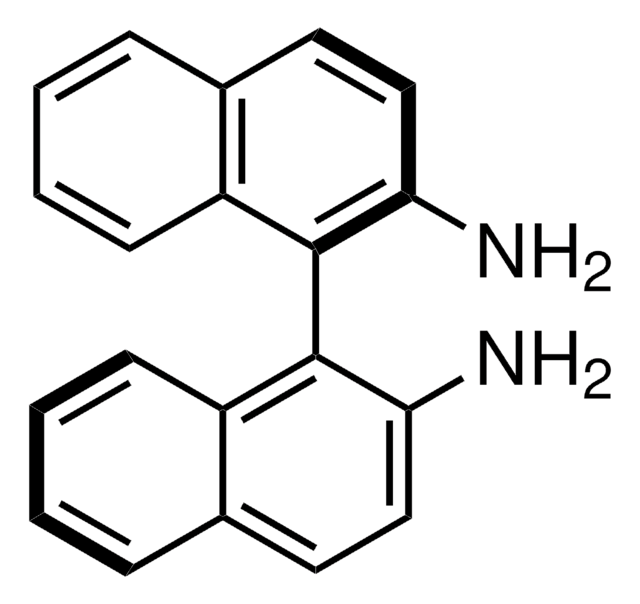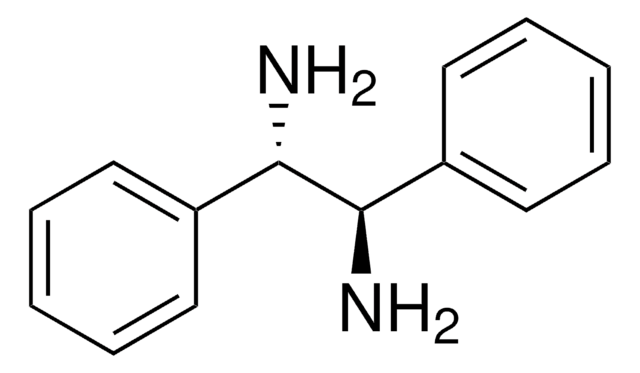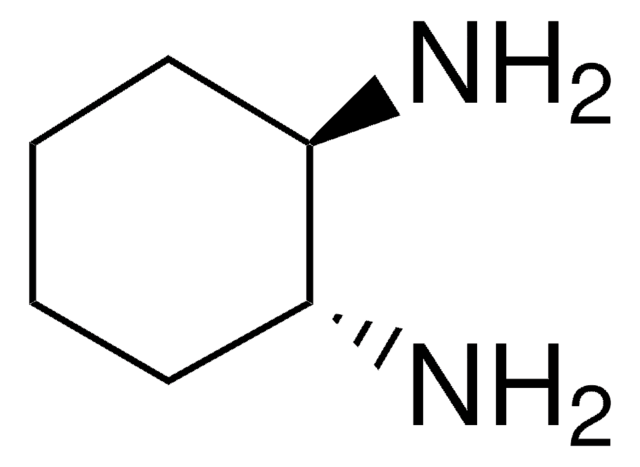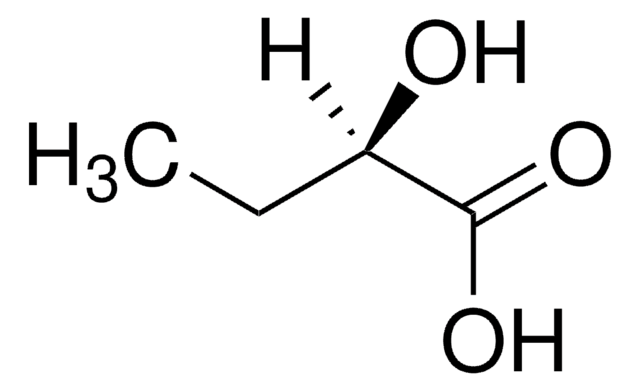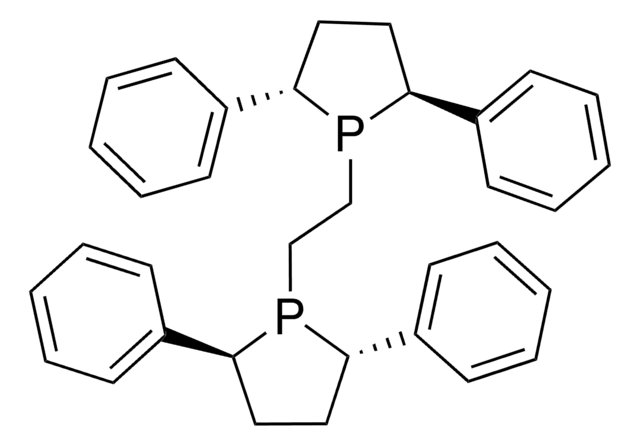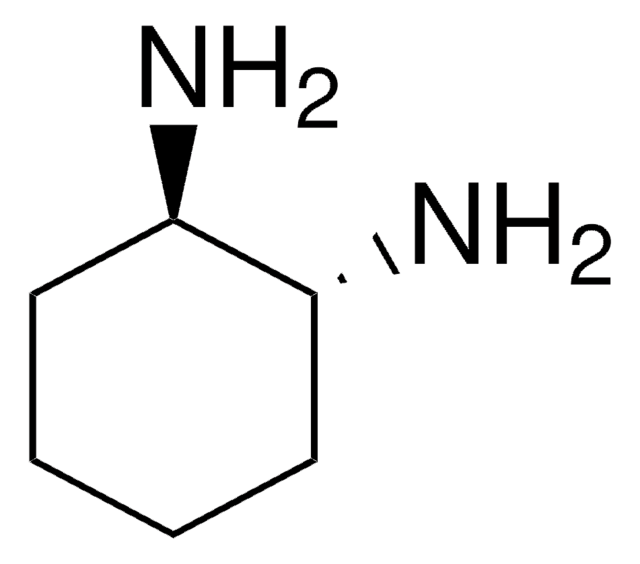685879
(1S,2S)-1,2-Bis(2-hydroxyphenyl)ethylenediamine
95%
Synonym(s):
(1S,2S)-1,2-Bis(2-hydroxyphenyl)-1,2-ethanediamine, (S,S) Jik Chin Mother Diamine, (S,S) Diaminopharm Diamine, (S,S) Mother Diamine
About This Item
Recommended Products
Quality Level
Assay
95%
form
solid
optical activity
[α]22/D -65°, c = 0.2 in chloroform
mp
157-162 °C
functional group
amine
SMILES string
N[C@H]([C@@H](N)c1ccccc1O)c2ccccc2O
InChI
1S/C14H16N2O2/c15-13(9-5-1-3-7-11(9)17)14(16)10-6-2-4-8-12(10)18/h1-8,13-14,17-18H,15-16H2/t13-,14-/m0/s1
InChI key
MRNPLGLZBUDMRE-KBPBESRZSA-N
General description
Application
- As a starting material for the synthesis of Schiff base complexes of gold(III), bearing potent anticancer activity.
- As a stereoinductor in the synthesis of quinoline and isoquinoline based 1,2-diamines; that are employed as catalysts in the preparation of warfarin and coumachlor in water.
Signal Word
Warning
Hazard Statements
Precautionary Statements
Hazard Classifications
Acute Tox. 4 Oral
Storage Class Code
11 - Combustible Solids
WGK
WGK 3
Personal Protective Equipment
Regulatory Listings
Regulatory Listings are mainly provided for chemical products. Only limited information can be provided here for non-chemical products. No entry means none of the components are listed. It is the user’s obligation to ensure the safe and legal use of the product.
JAN Code
685879-1G:
685879-10G:
685879-100MG:
685879-VAR:
685879-BULK:
Choose from one of the most recent versions:
Already Own This Product?
Find documentation for the products that you have recently purchased in the Document Library.
Customers Also Viewed
Articles
Chiral vicinal diamines are of tremendous interest to the synthetic chemist as they are found in many chiral catalysts and pharmaceuticals.
Related Content
The Chin group is interested in computational and experimental approaches to understanding stereoselective recognition and catalysis. Their studies in weak forces (H-bonding, electronic and steric effects) has led to a highly efficient method for making limitless varieties of chiral vicinal diamines from the 'mother diamine' that are useful for developing stereoselective organocatalysts or transition metal-based catalysts as well as for developing drugs (Acc Chem Res (2012) p1345). The 'mother diamine' is also useful for making binol, monophos and binap analogs. The Chin group is also interested in using reversible covalent bonds for stereoselective recognition and L to D conversion of natural and non-natural amino acids (EJOC (2012) p229).
Our team of scientists has experience in all areas of research including Life Science, Material Science, Chemical Synthesis, Chromatography, Analytical and many others.
Contact Technical Service


